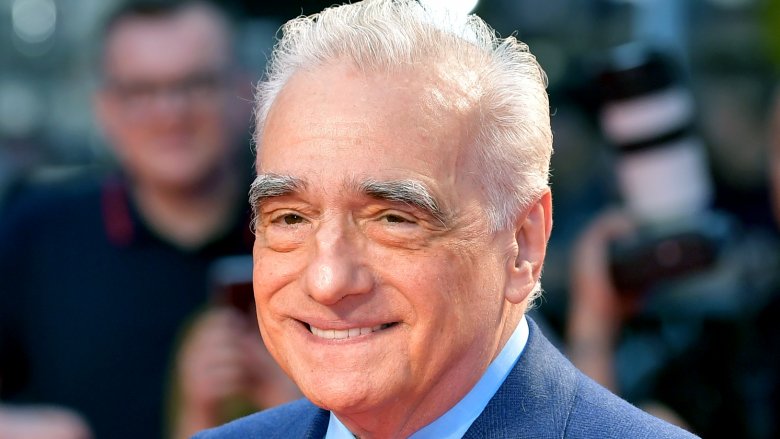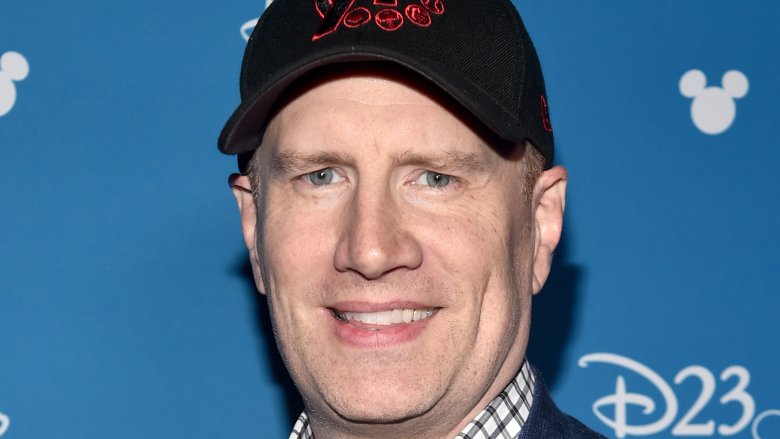Martin Scorsese Has Some Harsh Words About Marvel Movies
No Mighty Marvel for Marty.
In a recent conversation with Empire magazine, Martin Scorsese — perhaps the world's greatest living film director — had some pretty harsh words for the movies of the Marvel Cinematic Universe, which is by far the highest-grossing film franchise in history. (via The Guardian)
Scorsese told Empire that he simply couldn't get on board with superhero films in general and Marvel in particular, despite comic book-based films having become the dominant cultural force in recent years. "I tried, you know?" the director said. "But that's not cinema."
Ouch. Well, if anyone knows "cinema," it's Scorsese, but to exclude an entire genre from being described with that term seems needlessly exclusionary. The director went on to clarify his stance, using a backhanded compliment to imply that he doesn't, like, hate superhero movies or anything, he just doesn't exactly see them as a valid art form — at least, no more so than your typical Disneyland attraction.
"Honestly, the closest I can think of them, as well made as they are, with actors doing the best they can under the circumstances, is theme parks," Scorsese said. "It isn't the cinema of human beings trying to convey emotional, psychological experiences to another human being."
There's a fair bit of unpacking to do here. Is Scorsese implying that actors in superhero films have no more difficult a job than those putting on twice-daily performances at a theme park? Because there are a few who just might take exception to that implication. Putting aside the fact that Robert Downey, Jr., Chris Evans, Chris Hemsworth, Tom Holland, and more have totally won over the hearts of fans with their interpretations of iconic characters, there are more than a couple of thespians who are contemporaries of Scorsese that have also deigned to appear in these lowly productions. Michael Douglas, Robert Redford, Sir Anthony Hopkins, Tilda Swinton, and Kurt Russell, to name just a few, might take issue with Scorsese's apparent opinion that they're nothing more than glorified theme park employees for appearing in Marvel films.
Also, we weren't honestly aware that in order for a film to qualify as cinema, it was a prerequisite for it to feature "human beings trying to convey emotional, psychological experiences" to each other. Sure, it helps to have meaningful interactions between characters — but we can think of more than a few movies that don't necessarily lean on interpersonal drama as the main event, but which just might qualify as "cinema."
Even if such drama is a prerequisite, however, we submit that if Scorsese did indeed try to find what he was looking for in a Marvel film or two, he didn't try hard enough. If the onscreen conveyance of emotional, psychological experiences is what it takes to qualify as "cinema," then in our humble opinion, you can safely include Iron Man 3, Guardians of the Galaxy, Captain America: The Winter Soldier, Avengers: Infinity War, and Avengers: Endgame, off the top of our heads.
It's also worth noting that, despite his pointed criticism, Scorsese briefly served as a producer on Joker, a comic book film which was heavily influenced by his works. We'd also like to point out that, although we believe Goodfellas to be one of the greatest films ever made, we don't exactly remember a wealth of emotional, psychological experiences being shared between the characters. The same can be said for The Departed, a very good film which nevertheless stands out the most in our memories for featuring a bloody headshot roughly every five minutes. We digress.
What does Kevin Feige think of this kind of criticism?
Of course, it's not as if the superhero genre and Marvel Studios haven't endured this kind of criticism before. Marvel head honcho Kevin Feige has not had a heck of a lot to say in response, presumably because he's been too busy exacting his expert quality control on the studio's current productions and scouring Marvel lore for the next characters destined to become household names.
But at last year's Producers' Guild of America "Produced By" Conference, he did issue a brief, blanket response to those who feel that superhero movies are lacking in artistic merit. At the time, Black Panther — which grossed $1.3 billion dollars worldwide — was generating serious Oscar buzz, and it would go on to be nominated for several Academy Awards, including Best Picture. (It won three, though it failed to take home the big prize.)
"Maybe it's easy to dismiss VFX or flying people or spaceships or billion-dollar grosses," Feige said. "I think it is easy to say that you have already been awarded in a certain way... [Alfred] Hitchcock never won [an Oscar for Best Director], so it's very nice, but it doesn't mean everything. I would much rather be in a room full of engaged fans." (via The Hollywood Reporter)
Well, we don't have an audio clip of these remarks, but as nice a guy as Feige appears to be, one can practically hear the snark dripping off of his words. Funnily enough, this Oscar season might present a bit of a contest between contrasting interpretations of comic book characters: Joker, with all of its Scorsese influences and a towering performance by Joaquin Phoenix, will almost certainly be up for an award or two. Also likely to land a couple of nominations: Avengers: Endgame, which captured the entirety of the public imagination for months en route to becoming the highest-grossing film of all time.
It sure will be interesting to see how that plays out. Hey, Marty: we love ya, and you are truly a great artist, but we're not sure that it's anybody's place to put the definition of "cinema" into such a tiny box. We're still pumped to see The Irishman, though; we hear it's awesome.

